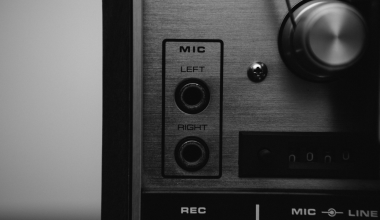Japanese music has captivated global audiences for decades, offering a unique blend of traditional influences and modern innovation. From the catchy beats of J-pop to the soul-stirring melodies of Enka, popular Japanese songs reflect the country’s vibrant culture and deep artistic heritage.
This blog explores the timeless appeal of Japanese music, diving into its history, iconic tracks, and the artists who have defined its sound. Whether you’re a fan of anime soundtracks or curious about traditional Japanese music, this comprehensive guide will introduce you to the most popular Japanese songs of all time.
A Brief History of Japanese Music
To understand the evolution of popular Japanese songs, it’s essential to explore the historical context. Japanese music has roots in ancient traditions, such as Gagaku (court music) and Shōmyō (Buddhist chanting), which later influenced contemporary genres.
Over the years, Japan’s music scene has evolved dramatically:
- Post-War Era: Enka emerged as a genre reminiscent of traditional folk songs, reflecting themes of nostalgia and longing.
- 1980s Boom: J-pop gained massive popularity, thanks to idols and bands that redefined modern music.
- Global Expansion: Today, anime soundtracks, city pop, and Japanese rock have attracted a worldwide following.
Top Genres Representing Popular Japanese Songs
1. J-Pop (Japanese Pop Music)
J-pop is synonymous with popular Japanese songs. Artists like Hikaru Utada, Ayumi Hamasaki, and Arashi have created timeless hits that dominate charts and playlists. J-pop’s appeal lies in its catchy melodies, upbeat rhythms, and innovative music videos.
2. Anime Soundtracks
Anime has played a significant role in promoting Japanese music globally. Iconic theme songs, such as A Cruel Angel’s Thesis from Neon Genesis Evangelion, are loved by fans worldwide.
3. City Pop
A genre that flourished in the late 1970s and 1980s, city pop blends soft rock, jazz, and funk. Songs like Mariya Takeuchi’s Plastic Love are enjoying a resurgence thanks to social media and streaming platforms.
4. Enka
For those who appreciate traditional music, Enka offers heartfelt ballads inspired by Japanese folk traditions. Artists like Hibari Misora and Kitajima Saburō have kept this genre alive.
5. Japanese Rock and Visual Kei
Rock bands like X Japan, ONE OK ROCK, and L’Arc-en-Ciel have brought powerful vocals and dynamic instrumentals to the forefront of Japanese music. Visual Kei, characterized by its flamboyant fashion, is a subculture that has influenced rock music in Japan.
Top 10 Popular Japanese Songs of All Time
- “First Love” – Hikaru Utada
A J-pop classic, First Love is a timeless ballad that captures the pain and beauty of young love. - “Plastic Love” – Mariya Takeuchi
This city pop masterpiece gained global fame decades after its release, thanks to its melancholic tune and nostalgic lyrics. - “A Cruel Angel’s Thesis” – Yoko Takahashi
An iconic anime theme song from Neon Genesis Evangelion, it remains a fan favorite. - “Heavy Rotation” – AKB48
A cheerful J-pop track by one of Japan’s most famous idol groups, this song is a staple at concerts and events. - “Lemon” – Kenshi Yonezu
With poetic lyrics and a haunting melody, Lemon became a chart-topping hit and cemented Yonezu’s status as a musical genius. - “Sukiyaki” – Kyu Sakamoto
The only Japanese song to top the Billboard Hot 100, Sukiyaki is a symbol of Japan’s musical influence on the world. - “Linda Linda” – The Blue Hearts
A punk rock anthem, Linda Linda is a high-energy track beloved by rock enthusiasts. - “Secret Base
Kimi ga Kureta Mono” – ZONE
This emotional pop song is often associated with friendship and farewells, making it a nostalgic favorite. - “Shikisai” – Yoko Kanno (From Macross Frontier)
Known for her work on anime soundtracks, Yoko Kanno’s compositions like Shikisai showcase her exceptional talent. - “Kurenai” – X Japan
A Visual Kei classic, Kurenai is a powerful rock ballad that has inspired countless fans and musicians.
How Popular Japanese Songs Are Shaping Global Music Trends
1. The Rise of Anime Culture
Anime has been instrumental in introducing Japanese music to global audiences. From theme songs to background scores, anime soundtracks like Attack on Titan’s Guren no Yumiya by Linked Horizon have become international hits.
Platforms like Spotify and YouTube have made it easier for fans worldwide to discover popular Japanese songs. Viral trends, such as TikTok dances to J-pop tracks, have further expanded their reach.
3. Cross-Cultural Collaborations
Japanese artists are collaborating with international musicians, blending styles and genres. For instance, Babymetal’s fusion of metal and J-pop has garnered fans globally.
Curating the Perfect Playlist of Popular Japanese Songs
If you’re new to Japanese music or want to expand your playlist, here’s a curated mix of timeless classics and modern hits:
- “First Love” – Hikaru Utada
- “Plastic Love” – Mariya Takeuchi
- “Lemon” – Kenshi Yonezu
- “A Cruel Angel’s Thesis” – Yoko Takahashi
- “PPAP (Pen-Pineapple-Apple-Pen)” – Pikotaro (For Fun!)
- “Zen Zen Zense” – RADWIMPS (From Your Name)
- “We Are” – Hiroshi Kitadani (One Piece Theme Song)
- “Blue Bird” – Ikimono Gakari
- “Feel” – Namie Amuro
- “Koi” – Gen Hoshino
Conclusion: Why Popular Japanese Songs Are Here to Stay
The rich diversity and emotional depth of popular Japanese songs make them a lasting force in the global music scene. Whether it’s the nostalgic charm of city pop, the heartfelt ballads of J-pop, or the electrifying energy of rock and Visual Kei, there’s a Japanese song for every mood and moment.
As these tracks continue to break language barriers and gain new fans worldwide, the future of Japanese music looks brighter than ever. Take a moment to explore these iconic songs, and let the magic of Japanese music enhance your playlist.
For further reading, explore these related articles:
- Moose Wala New Song: Exploring the Legacy of Sidhu Moose Wala
- A Journey Through the Best Soft Music Songs: A Melodic Escape
For additional resources on music marketing and distribution, visit Deliver My Tune.






